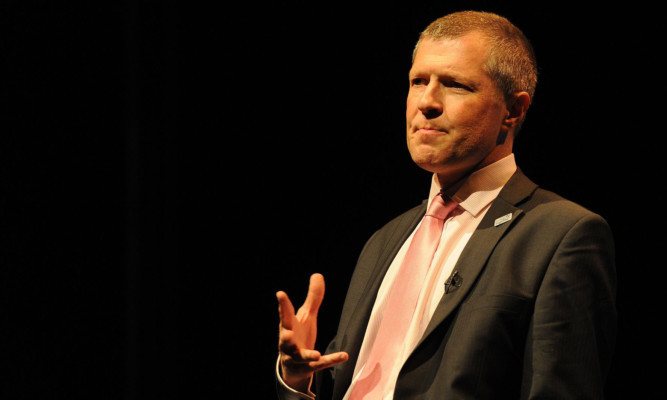Liberal Democrat leader Willie Rennie has called for “proper scrutiny” of Scottish Government plans for a Scotland-wide ID database.
The Government wants to expand an NHS register to cover all residents and share access with more than 100 public bodies, including HM Revenue and Customs (HMRC).
The proposals have already drawn criticism from privacy and civil rights campaigners, while a submission to the Government’s consultation on the proposals by the UK Information Commissioner’s Office (ICO) also raised concerns.
Currently the plans only require the approval of a Holyrood committee, because they involve amendments to existing regulations, and not new legislation.
Mr Rennie said: “I will make no bones about reaching out to all political parties to support our motion. When it comes to fundamental issues of protecting our civil liberties and building a fairer society, there can be no party line.
“The SNP joined us in 2005 to oppose the creation of ID cards. The Conservatives supported our efforts to repeal the legislation. And Scottish Labour have supported our motion against this proposal.
“If SNP ministers took their eye off the ball whilst the civil service created these proposals, now is the time to speak out against them. On these significant proposals, it is of real concern that we are still in the dark about the real implications of creating a single national database.”
The National Health Service Central Register (NHSCR) is an electronic database held and maintained by National Records of Scotland (NRS).
It holds the basic demographic details of everyone who is born, who has died or is, or has been, on the list of a GP in Scotland.
Each individual in the NHSCR is given a unique citizen reference number (UCRN).
At present the NHSCR holds address information for approximately 30% of the population, when individuals have consented to their local authority sharing this information with NRS.
NRS also has access to postcode information provided by health boards, but it is not currently permitted to hold this information in the NHSCR.
The Government wants this additional postcode data to be added to the register and shared with other public bodies to assist with tracing missing persons, and enable the identification of Scottish taxpayers.
In its submission to the consultation on the Government’s proposals, the ICO said: “We note the concerns reported recently in the media in respect of the proposals in that they will effectively turn the UCRN into a national identity number.
“Whilst the ICO are neither for nor against the creation of a national identity number per se we do advocate against the creeping use of such unique identifiers to the extent that they could become the national identity number by default.”
Speaking ahead of a Parliamentary debate on privacy, Deputy First Minister John Swinney said all contributions to the consultation exercise will be carefully considered and he stressed ministers’ “unequivocal commitment” to the protection of privacy.
Decisions on personal data will be made in a manner consistent with the Scottish Government’s long-standing commitment to protect privacy, he said.
Mr Swinney said: “We cherish personal privacy and will protect it. Indeed, it was this government that took the initiative in 2009 to set up an expert group to develop Identity Management and Privacy Principles – principles published in 2010, and updated in 2014.
“We will continue to lead good practice and act in a way that is consistent with these principles. We are not and we will not create a new database. We will not be sharing health records.
“We will listen carefully to all consultation responses. And we will act in a manner that is consistent with our long-standing principles in protecting personal data.
“Decisions will only be taken after full scrutiny by Parliament of any eventual proposals. That is the principle upon which our government is run and will remain so.”
